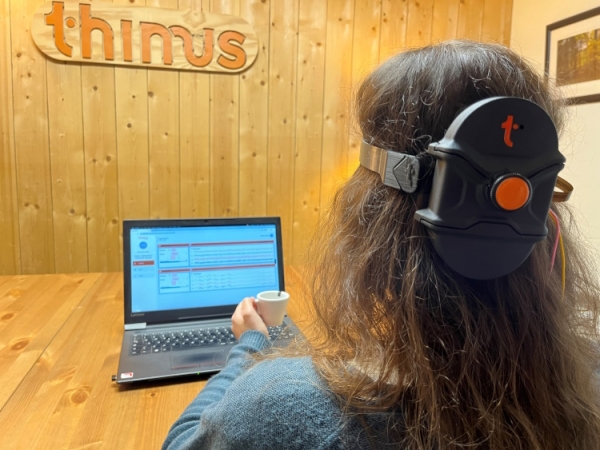Flavour house banks on neuroscience to unlock the consumers’ relationship with food
Givaudan's Taste & Wellbeing business aims to shape the future of food by becoming the co-creation partner of choice. But to get there, it has to get to grips with how consumers truly feel about a product throughout the eating or drinking experience.
Along with sustainability, health and quality, emotion today plays a critical role in the development of new products. Understanding and responding to consumer preferences has never been more important, but there’s often a gap between what consumers say and their actual experience.
Neuroscience may be the key to closing that gap.
The Swiss major's collaboration with Thimus is the first extensive use of the tech company’s TBox platform in the world of food, forming the base of Givaudan’s Food Emotions powered by Thimus programme.
TBox – a unique ready-to-use platform that’s able to monitor unconscious processes playing a role in human behaviour – is poised to become an exclusive asset in the research and development of F&B products.
Standard sensory testing sees consumers participate in a focus group or answer a questionnaire. Thimus’ portable tool takes it a step further and provides participants with a headset to wear during the taste tests.
The headset records brain signals, which are processed by validated algorithms to measure four key mental states: frontal asymmetry, engagement, cognitive workload and relaxation. Using proprietary software and a cloud-based database for data analysis and retrieval, TBox is then able to deliver insights that were previously unavailable or unreliable.
Increasing consumer satisfaction
“Neuroscience has the unique ability to reveal how consumers truly feel about a product throughout the eating or drinking experience,” said Fabio Campanile, global head of Science & Technology for Taste & Wellbeing at Givaudan.
“The collaboration with Thimus marks a significant milestone in consumer understanding. It has the power to revolutionise how we co-create with our customers, increasingly satisfying consumers, and transforming the way the world eats while enabling more nutritious food choices.”
Givaudan has already used the Thimus technology in several customer projects with very successful results.
Recently, the Swiss multinational manufacturer of flavours used the tech to compare two botanical soft drink prototypes in consumer tests, with results revealing that consumers implicitly found one concept significantly more satisfying than the other.
The implicit data gathered from Thimus pinpointed a negative reaction during the taste phase in the second product.
The product developer was then able to identify a successful route to optimise the soft drink by improving mouthfeel. In this instance, the problem and its resolution could not have been uncovered by examining declarative data alone.
Similar investigation can be applied to the creation of standout snacks and baked goods.
Humanising neuroscience
“We were immediately excited about the prospect of working with Givaudan because we see such a strong alignment in our missions of transforming food systems through a food experience lens,” said Thimus founder and CEO Mario Ubiali.
“At Thimus, we’re humanising neuroscience and using it to redesign the foods we eat.
“We’re eager to support Givaudan in gaining an indepth understanding of the motivations, culture and emotions that underlie these experiences.”
The tech is gradually being rolled out within Givaudan and will be available for selective customer use in some regions.











